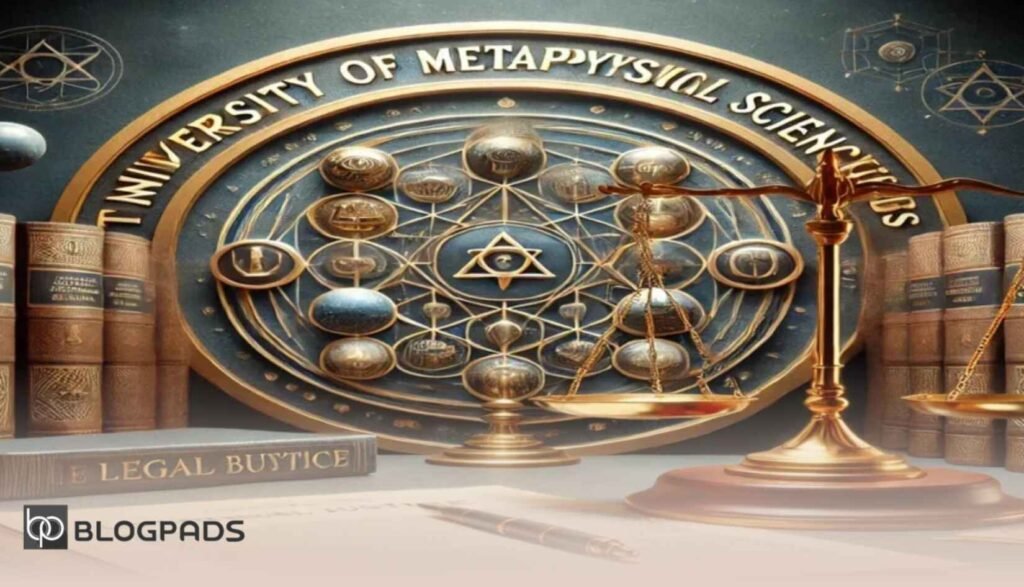1. Background of the University
University of Metaphysical Sciences Lawsuit Update: A Comprehensive Overview The University of Metaphysical Sciences (UMS) is a private institution offering courses in metaphysics, spiritual development, and holistic healing. Founded to promote self-awareness and inner peace, UMS provides online and in-person programs designed to help students achieve spiritual growth.
Introduction
Legal battles often capture our attention, especially when they involve institutions that claim to help people achieve personal and spiritual growth. In this context, the case of the University of Metaphysical Sciences stands out. The University of Metaphysical Sciences, known for its metaphysical and spiritual education programs, is currently embroiled in a lawsuit that has piqued public interest. As a result, questions about its practices have come to light. To delve deeper, what exactly is happening, and why does it matter? This article dives deep into the “University of Metaphysical Sciences Lawsuit Update: A Comprehensive Overview” to give you all the answers.
2. What Is the Lawsuit About?
Specifically, the lawsuit centers around allegations of false advertising and lack of proper accreditation. Plaintiffs argue that the degrees and certifications offered by UMS lack legitimacy in professional settings. Consequently, this has raised concerns among students and educators alike. Critics claim that students are misled about the value of their education. Furthermore, they argue that clearer guidelines are necessary for institutions offering similar programs.
3. Key Allegations Made
3.1 Misleading Advertising
UMS is accused of promoting its programs in a way that exaggerates their value. For example, critics point to promotional materials that may imply broader professional recognition than is warranted.
3.2 Lack of Accreditation
While the university provides degrees, some argue these qualifications are not recognized by official accrediting bodies. As a result, students may face challenges when presenting these credentials in professional or academic settings.
3.3 Financial Mismanagement
Allegations of misuse of tuition fees have also emerged, raising concerns about transparency. Additionally, these claims have fueled skepticism about the institution’s financial practices.
4. The University’s Defense
The university has denied all allegations, asserting that it has always been transparent about its programs. UMS claims to provide education aimed at personal growth rather than professional certification.
5. Timeline of Legal Proceedings
5.1 Initial Complaints
The first complaints were filed in early 2023, sparking an investigation. Consequently, these complaints laid the groundwork for the formal lawsuit that followed.
5.2 Formal Lawsuit Filed
By mid-2023, the lawsuit was officially filed, citing multiple grievances.
5.3 Recent Developments
As of late 2024, court proceedings are ongoing, with both sides presenting evidence.
6. Stakeholders Involved
6.1 Plaintiffs
The primary plaintiffs are former students who feel misled.
6.2 Defendants
UMS and its key administrators are named as defendants.
6.3 Other Interested Parties
Accreditation agencies and legal experts have also weighed in on the case.
7. How the Lawsuit Affects Students
Moreover, for current and former students, the lawsuit raises concerns about the validity of their degrees. Some students feel uncertain about their future, while others express disappointment in the institution.
8. Public Reaction to the Case
The public reaction has been a mix of curiosity and skepticism. Furthermore, this case has ignited debates about the role and regulation of alternative education institutions. Supporters of metaphysical education see the lawsuit as an attack on alternative learning, while critics argue it highlights the need for stricter regulations.
9. Legal Experts’ Opinions
9.1 For the Plaintiffs
Legal experts sympathetic to the plaintiffs argue that educational institutions must adhere to high standards of transparency.
9.2 For the Defendants
Defenders claim that niche institutions like UMS serve a unique purpose and should not be judged by conventional standards.
10. Potential Outcomes of the Lawsuit
10.1 Favorable for Plaintiffs
If the plaintiffs win, UMS might face fines, refunds, or even closure.
10.2 Favorable for UMS
A victory for UMS could affirm its legitimacy and bolster its reputation.
10.3 Settlement
A settlement could be a middle ground, offering compensation without an admission of guilt.
11. Broader Implications for Metaphysical Studies
This case could set a precedent for how metaphysical institutions operate, potentially leading to new regulations and standards.
12. Lessons Learned
Transparency and clear communication are crucial for maintaining trust. Therefore, educational institutions must prioritize these values to ensure their credibility. Institutions must ensure that their offerings meet students’ expectations.
13. Where Things Stand Now
Currently, the lawsuit remains unresolved. Both sides are preparing for the next phase of the trial, with updates expected in early 2025.
14. Updates from the University
UMS has released statements assuring students and stakeholders of its commitment to resolving the matter. The university continues to operate and offer courses during the legal proceedings.
15. How to Stay Updated
To follow the latest developments:
- Visit the official UMS website.
- Check news outlets covering the case.
- Join forums and communities discussing metaphysical education.
Conclusion
University of Metaphysical Sciences Lawsuit Update: A Comprehensive Overview sheds light on a complex legal battle that has significant implications for students, institutions, and the broader metaphysical community. While the outcome remains uncertain, this case underscores the importance of transparency and accountability in education.
FAQs
1. What is the main issue in the lawsuit?
The main issue is whether UMS misled students about the legitimacy and value of its degrees.
2. Is the University of Metaphysical Sciences accredited?
UMS is not accredited by traditional accrediting bodies, which is a point of contention in the lawsuit.
3. How does the lawsuit affect current students?
Current students may face uncertainty about the validity of their degrees, though courses are still being offered.
4. What are the potential outcomes of the case?
Outcomes range from financial penalties for UMS to a potential settlement or dismissal of the case.
5. Where can I find more updates on the lawsuit?
You can find updates on the UMS website, news outlets, and online forums focused on metaphysical education.

